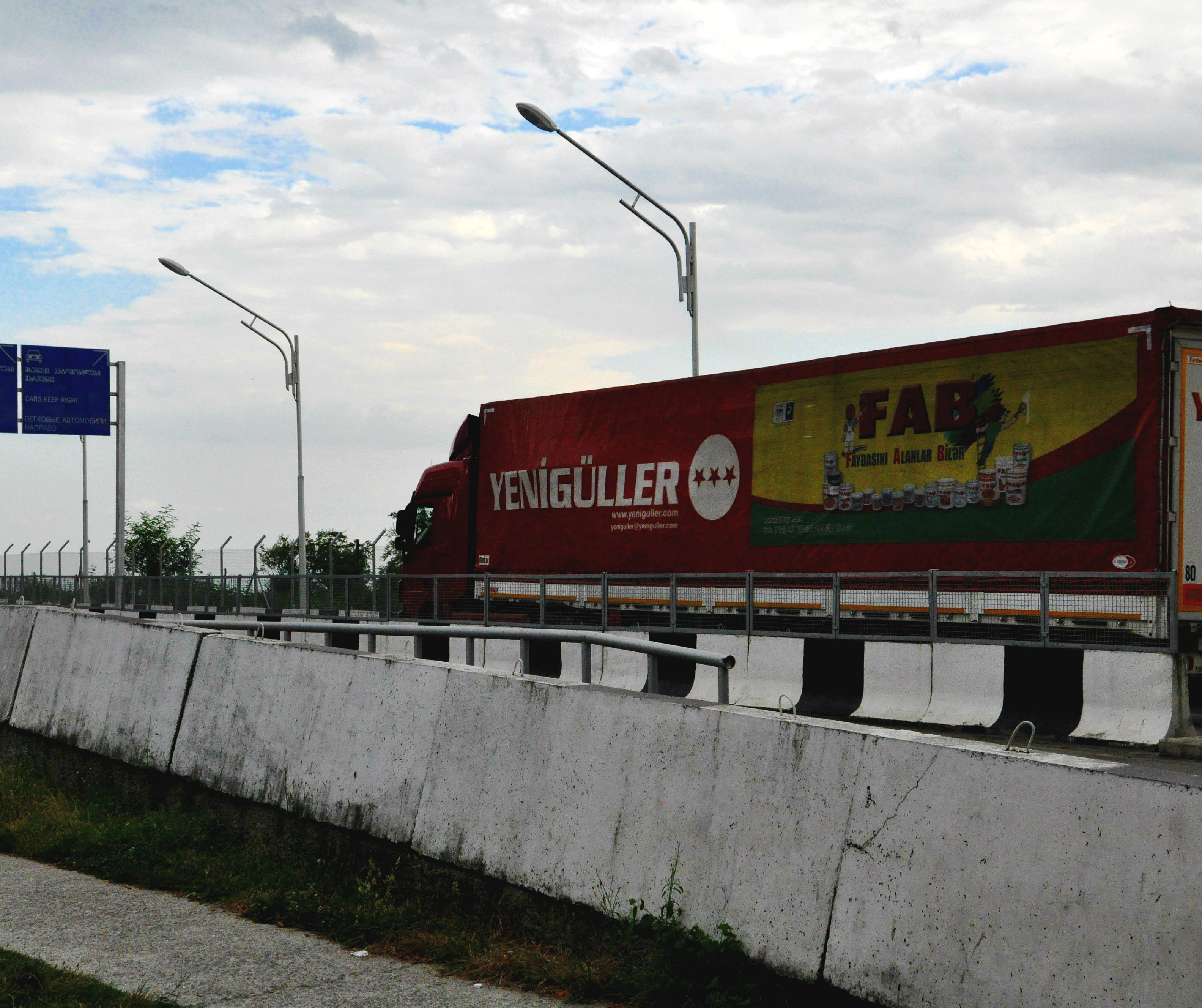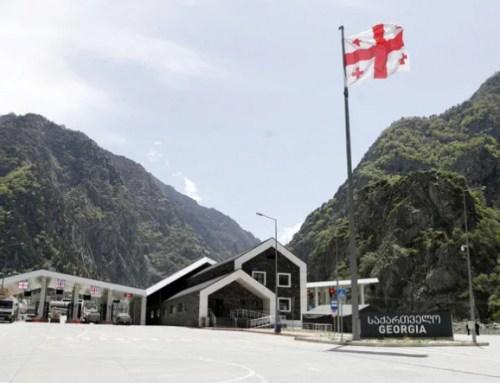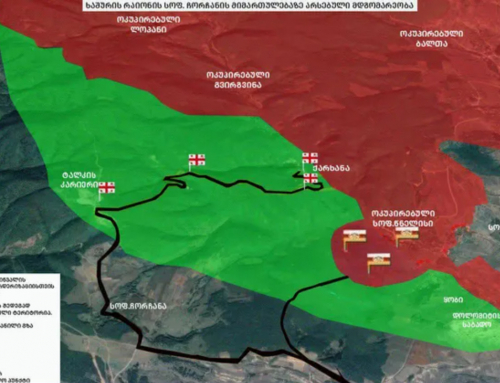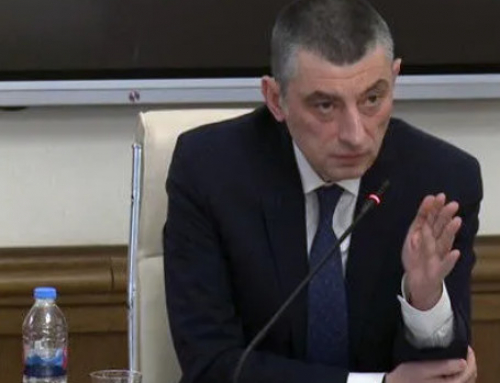
A trailer passing the border from Georgia to Azerbaijan. (DFWatch.)
TBILISI, DFWatch–Georgia is strengthening its control of transit trucks.
Levan Izoria, Deputy Interior Minister, told DF Watch that the ministry made this decision after the number of car accidents increased and the number of casualties in accidents has also increased. The reason is the road regulations violation by the trucks, he says.
Izoria says that trucks will have to have special technical equipment called a tachograph, otherwise they will be fined.
A tachograph is a technical device which registers how many kilometers the car has driven, in what period of time and how long breaks the driver had.
There is no such control today. The deputy minister notes that due to the lack of control transit truck drivers put other drivers in danger.
One of the Georgian drivers told DF Watch that the amount of truck traffic has increased lately. They usually drive together and there is no distance between them, that’s why the other drivers are in danger, because the road from Tbilisi to the western regions is really narrow, except a new highway, which is only 100 km from Tbilisi to the west. It is almost impossible to drive on narrow roads with this huge tracks and columns of tracks.
“It is understandable that increasing number of transit is beneficial for the country, but what we must do, drivers of ordinary cars? We are in danger, but if there will be new regulations, it will be really good,” Becka Pirtskhalava, 35, explains.
He says that this has become significant problem in summer, as local population moves to different regions inside the country on holidays and the number of drivers is higher than usual.
According to the data of National Statistics Department, 65 investigations are launched for the road accidents. More than 65 percent of them involve transit trucks. Interior Ministry representatives say that these numbers have increased since May.
Deputy Interior Minister told us that it is international instruction to establish new regulations. If Georgia won’t implement the instruction, transit trucks registered in Georgia won’t be allowed to move to European countries.
Georgia has taken this responsibility in March and is obliged to fulfill it by the end of year.
“Georgia is a transit country. There are goods from different countries,” Izoria says, “companies must take care that their tracks have a tachographs and on the other hand, each patrol police must have special devices by which they will read data in tachographs.”
Izoria says that fine for violating the rule of having tachograph will be GEL 500 (USD 300).
The Ministry of Economy will have right to fine the company, which owns those trucks. Fine for companies will be GEL 5000 (USD 3000). Parliament will soon review draft of new regulations for administrative violations’ code.
Apart from traffic safety, another major problem with transit trucks is that some of them carry heroin from Afghanistan. The U.S. State Department annual report about international drug smuggling has noted the problem of heroin transiting through Georgia on “T.I.R.”-marked trucks, which are hard to check for individual countries’ police forces as it requires going through a complicated procedure.





Leave A Comment
You must be logged in to post a comment.